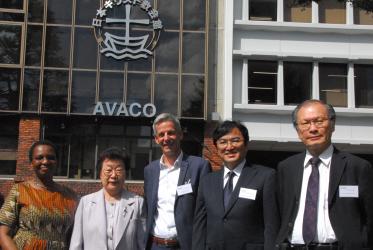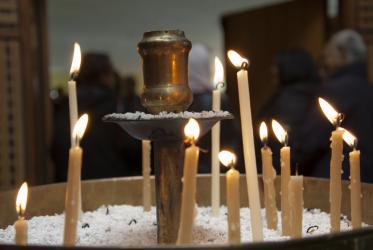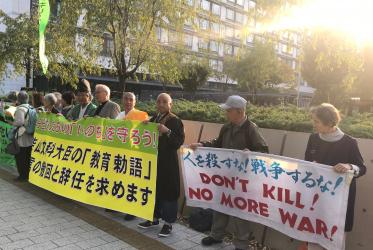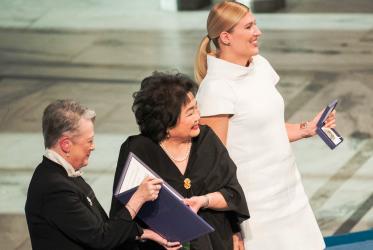Displaying 21 - 40 of 63
18 September 2019
In Japan, indigenous and ecumenical youth call for action against racism
12 September 2019
WCC condemns massacre of farmers in Philippines
12 April 2019
All pilgrim routes lead to COP24
11 December 2018
#WCC70: A prayer about health and healing
20 July 2018
G7 must address famine
22 May 2017
New Executive Committee members elected in Trondheim
28 June 2016
"I hit the ground running": Katalina Tahaafe-Williams
16 February 2016










